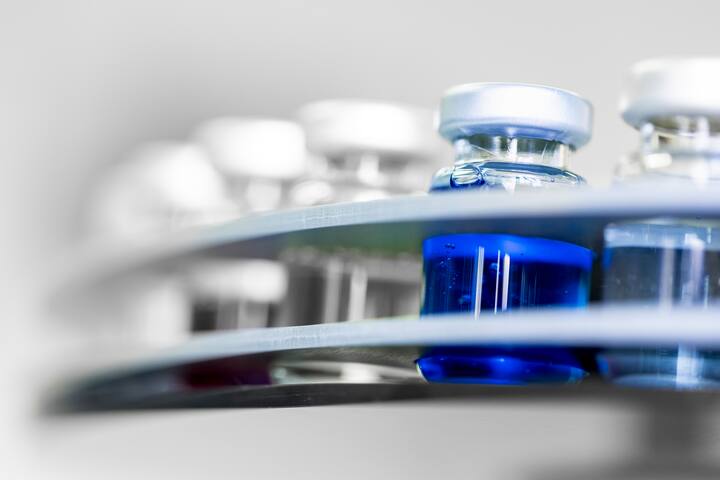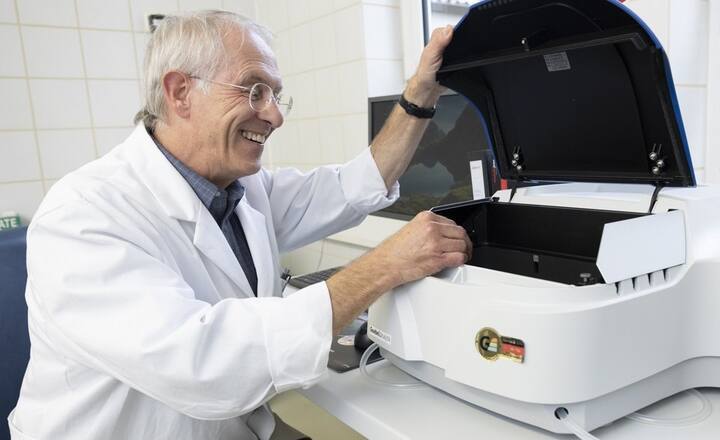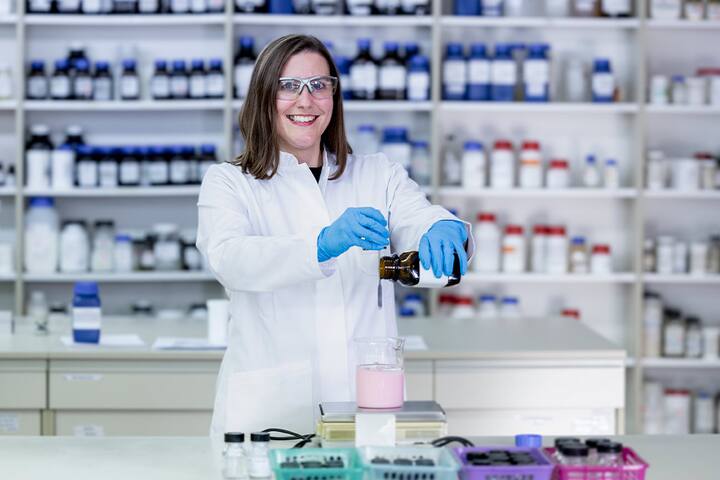
Product safety and highest quality thanks to modern analytics
Analytics
Use our state-of-the-art analytical tests to ensure the safety and quality of your cosmetic products. Our state-of-the-art chromatographic techniques and wet-chemical analyses meet the highest standards.
Benefits of Analytics
Expert assessments provided by our legally trained specialists.
Over 50 years of experience working with clients in complete confidentiality.
Our commitment to quality and expertise has made us a trusted partner worldwide.
Everything under one roof: interdisciplinary expertise in research, development, testing, and analysis.
Our services for you
Quality control for your products safety

Chromatographic analytics

Wet chemical and physical analysis

Stability testing of cosmetic products

In-Vitro-irritation testing
We analyse your cosmetics
According to EU Cosmetics Regulation 1223/2009, cosmetic packaging must list all ingredients. Some are limited by concentration and must be verified. Claims about certain ingredients also require proof to avoid misleading consumers.
Our analytic has DAkkS-accredited test procedures in accordance with ISO 17025 since 2016 (D-PL-22588-01-00) - ensuring reliable quality.
In addition to standard tests, we’re happy to develop tailored methods to suit your specific needs.
Three main reasons for the necessity of analysing cosmetic products
Accordance with the European Cosmetic Regulation in respect of the statutory thresholds of the allowed substances in finished products
Correctness of the advertising statements
Quantitative monitoring of quality determining constituents
A selection of our analytical Portfolio that demonstrates the ability of our laboratory
Determination of UV-filters
Determination of preservatives
Determination of skin care substances
Determination of selected vitamins
Determination of physical and chemical parameters
Allergenic fragrances (Accreditation pending)
and much more
In cooperation with an accredited microbiology laboratory, we furthermore offer:
Preservation challenge test
Total germ count and determination of pathogens
Examples of our methodologies
UHPLC
HPTLC
Karl Fischer Titration
UV-photometer
Enzyme-Test-Kits
Selective sample preparation
Stability test (temperature/time) / stress test
GC-MS
Determination of stability parameters
Newly formulated or reformulated cosmetic products have to fulfil certain stability criteria that are specified in the Cosmetics Directive. These stability parameters are measured by means of (long-term) stability tests.
Storage stability tests are performed in heating and cooling cabinets at different temperatures and for different storage times.
After predefined test times the relevant stability parameters are determined by means of physico-chemical and instrumental analytical tests.
If so desired, the suitability and compatibility of packaging materials can be tested.
Example of a storage stability test design:
Number of stored lots: | 3 |
|---|---|
Storage time: | 6 month |
Storage temperatures: | 4°C, 20°C (25°C, room temperature), 40°C |
Test periods: | T0, T1, T3, T6 |
Test parameters: | - Organoleptic parameters - Formulation parameters - Physico-chemical parameters - Quantitative analysis - Packaging material compatibility |

In vitro test methods
To determine irritation potential
Because of the animal protection regulations from the year 2013, animal experiments are permanently banned in the European Union for testing cosmetic ingredients and finished products. To ensure the safety of new finished products and for selection of raw materials the in vitro test method described below is used routinely to determine the irritation potential:
1. Investigation of haemolysis activity in the red blood cell test (RBC test) to assess the irritation potential of surfactants and surfactant-containing products (INVITTOX Protocol # 37)
These services might also be of interest to you

Skin physiology

Galenics
Leading company in this service

Normec Schrader Institute
Holzminden Germany
